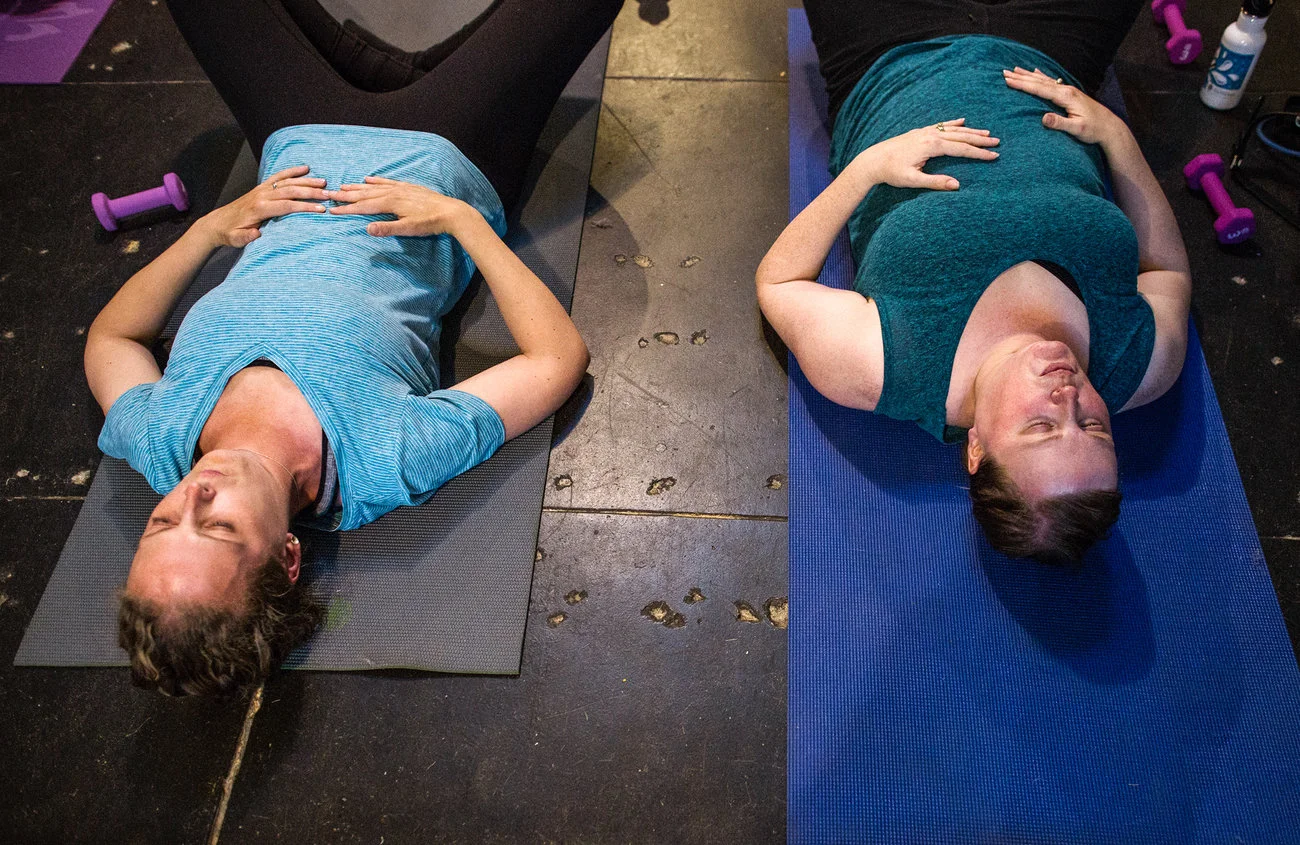 This month we’re continuing to explore issues of sustainable farming, this time with a focus on raising livestock in ways that keep both our environment and our bodies healthy. To kick off the conversation, the Jade Integrated Health staff decided to screen Food Inc. as part of our Workplace Wellness program. It’s a documentary about industrial farming techniques in the United States that outlines the great damage factory farming is doing to our environment as well as our bodies.
This month we’re continuing to explore issues of sustainable farming, this time with a focus on raising livestock in ways that keep both our environment and our bodies healthy. To kick off the conversation, the Jade Integrated Health staff decided to screen Food Inc. as part of our Workplace Wellness program. It’s a documentary about industrial farming techniques in the United States that outlines the great damage factory farming is doing to our environment as well as our bodies.
If you’ve never seen Food Inc., it’s a great introduction to the industrial farming crisis. It paints a dire and sometimes painfully honest picture of the state of agriculture in the United States. It’s a call to action that we hope you’ll heed with us! You can check out the trailer here.
The first part of the film focuses on approaches towards raising livestock. Behind the pastoral facade that some companies try to market their products with, there is a grim reality in which animals are treated inhumanely all the while being pumped with hormones, steroids and antibiotics that we later end up consuming, many times without a label to give us fair warning.
This clip from Food Inc. shows how many modern farms go about raising chickens. It’s a harrowing scene that shows how mass production has distorted farming techniques for the worse in our country. Through hormone treatments, farmers have been able to tamper with the natural maturation process of animals so that chickens reach adulthood in just seven days! This accelerated growth means that their bones are never able to fully develop, so chickens end up crammed together in tight spaces unable to move, wallowing in each other’s filth. It’s no wonder many chickens end up sick. Startlingly, under current farming standards, unhealthy fowl are just as likely to be processed for food and end up on our plates.
If you have Netflix streaming, you can catch the entire film online. Let us know what you think and if it’s changed your mind about your own attitudes towards food and how it makes its way from the farm to our tables.
Here are a few thoughts from our team about the movie:
The most vivid impression I got was from the cattle processing plant vs. the cattle farmer with grass fed beef. The processing plant’s environment appeared a dead desolate place with brown flat lifeless earth...toxic. By contrast, the grass fed farm was an image of what farm’s have always been portrayed to the people of this country, picturesque like children’s toys and books, with lush green hills and a variety of farm animals. I like meat, but not from a place where I feel the five second rule doesn’t apply throughout the entire processing plant. Local is the way to go. - John
My biggest observation about the movie is that the corporatization of our food culture is bad news for many reasons...educate yourself, vote every time you make a choice about your food, and support local agriculture! -Heather
What struck me is how far reaching our food choices are. These choices affect everything from our health, our environment, big business, small business, immigration and politics. It only makes sense that supporting local agriculture offers us a level of transparency with the food we consume. For example, we can visit the farms that are at our local farmer’s market. On that visit we are likely to see more responsible farming practices and a more positive culture for the workers on that farm. - Nancy
Watching Food Inc. I initially experienced a range of emotions from shock to frustration about the way much of the food industry is run. The lack of concern about the short and long term ramifications on us a society and the environment for the quest to maximize profits is disturbing. One of the teachings of yoga is called Ahimsa, which is a Sanskrit word meaning non-harming or non-killing, and teaches us to be compassionate to all living beings. It is not simply passiveness, but a way to positively approach decisions in daily life. Through mindfully approaching decisions, there is a call to be conscious, aware, and educated in our choices. Living with compassion is not about following a set of rules or trying to fit a certain label. What we choose to buy and eat makes a statement about our ethics and our view of the world, about our very humanity. After my initial feelings of shock, disempowerment, and anger, I have begun to think about and implement some changes that I can make that will be in line with being compassionate and mindful. Last week, as I was preparing to host a small 4th of July party, I decided to prepare all vegetarian: bean dip, salsa, shish-kabobs, and fruit deserts. It was a pleasure seeing our friends enjoying all vegetarian fare, and knowing that the food was nourishing, cruelty-free, fresh, and made with love. Hope you had a great weekend!! -Maura
Back in 2009 when Food Inc. was released I was fast to watch it and faster to feel overwhelmed with how to make significant change. In the years since then I’ve participated in local Broadturn Farm's CSA, shopped at local farmer's markets, visited local farms for Maple Sunday and Strawberry Picking. I've switched to locally grown and small farmed livestock and spend time appreciating the lives that are grown and die for my sustenance. That's my upside. My downside was stated in this article years ago, "But Food Inc.’s most lasting impression is that big business controls the government, and that without millions of dollars to use as weapons against it, Monsanto will take over the world." - Jodi
 With a rich agricultural history like Maine’s, it shouldn’t be a surprise that lots of our own farms are leading the way when it comes to re-integrating sustainable farming techniques and moving away from the harmful model of modern agribusinesses.
With a rich agricultural history like Maine’s, it shouldn’t be a surprise that lots of our own farms are leading the way when it comes to re-integrating sustainable farming techniques and moving away from the harmful model of modern agribusinesses. Eating out? Why not try one of Jade Integrated Health’s favorite restaurants, El Rayo Taqueria. They use local produce whenever possible and order over 200 pounds of sustainably raised pollock a week to make their famous fish tacos. You can check out their menu, including lots of helpful nutritional information, on their website.
Eating out? Why not try one of Jade Integrated Health’s favorite restaurants, El Rayo Taqueria. They use local produce whenever possible and order over 200 pounds of sustainably raised pollock a week to make their famous fish tacos. You can check out their menu, including lots of helpful nutritional information, on their website.






